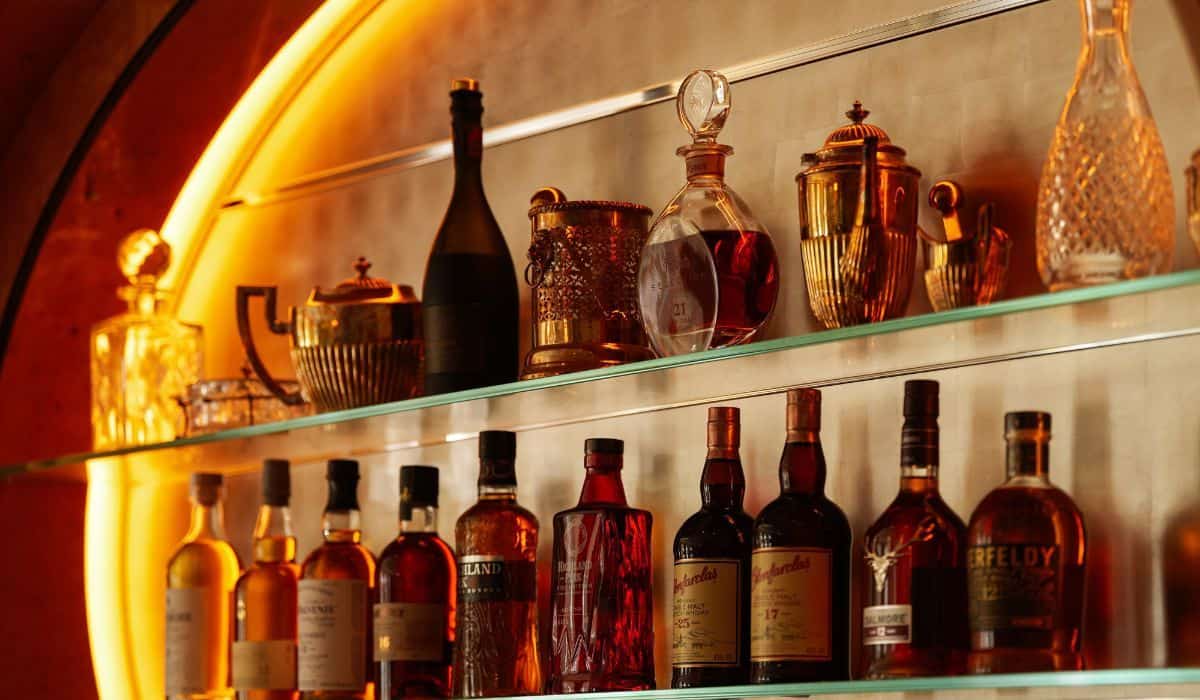Drinking Alcohol is an Enjoyable Activity for Many. But is it a Hobby?

Alcohol consumption has been a popular diversion for as long as man has been able to ferment, and with the sheer range and availability of alcoholic beverages and spirits, it is unsurprising that over half of Americans report enjoying an alcoholic beverage within the last month.
For many people, the enjoyment of alcohol means that they are likely to describe drinking as a pleasurable pastime, even if only occasionally.
Enjoying savoring different types of alcoholic beverages or mixing cocktails may also be activities that are particularly relished.
The Act of Drinking Alcohol is Unlikely to Make the Grade as a Hobby.
Partaking of an alcoholic beverage in the company of friends and associates or alone in moderation is something that many people do regularly to unwind or socialize.
However, frequent alcohol consumption is not always a good thing, especially if done to excess. To describe drinking as a hobby or pastime can be an indicator of a problem drinking or alcohol abuse.
If you are worried about problem drinking in yourself or others you can seek help.
There are some viable hobbies for the bibulous.
Many people do cultivate an interest in wines, spirits, and craft beers that could meet the definition of a hobby.
These pastimes include a lot of research and learning about these traditional drinks and some may even develop a passion for collecting wines and spirits that could turn out to be a shrewd investment.
Let’s take a look at some of the key hobbies that are centered on alcoholic drinks.
Our Take on Hobbies Involving Alcoholic Beverages
Wine tasting
If you enjoy a glass of good wine, learning more about the composition of flavors and aromatics that make wine-drinking pleasurable could give you a newfound appreciation of this most ancient of beverages.
Wine tasting is a means of evaluating wines with sensory exploration. It has been done for thousands of years as a means of testing if a wine is fit for consumption. Over the centuries formal systems and methods for wine tasting have developed which have informed and shaped the contemporary approach.
Typically, wine tasting has 4 key stages:
- Evaluation of the appearance of the wine: this stage is all about looking at the wine, with mention of its clarity and the depth, brightness, or intensity of its coloring.
- The aroma of the wine while it is in the glass (“in glass”): this stage of wine tasting tackles the smell of the wine or its “nose”.
- The sensation of the wine in the mouth (“in mouth”): by breaking down the structure and composition of the wine in rich descriptive terms, a sound qualitative assessment of its properties can be made. You may have encountered wine tasting terms like “astringent”, “fruity”, or “bodied”.
- The aftertaste of the wine (known as the “finish”): may be long or short.
These steps combine to give an overall assessment of the wine’s character, complexities, suitability for drinking or further aging, and the presence of any faults.
By learning these techniques through wine tasting experiences, courses, or books you can develop your palate and gain a greater discernment of good wine. Learn how to pair wines with different foods and deliver exceptional hospitality.
You will also master the art of decanting wines and storing them properly. Wine tasting may also be a precursor to the hobby of collecting wines or even blossom into visits to famous old and new world wineries.
Collecting wines and spirits
Enthusiasm for collecting wines is on the increase globally and demand for rare or niche vintage wines has made savvy wine collectors akin to the shrewdest of investors. Spirits like Whisky are also in demand and can be collected similarly and even handed down, as this father and son did over almost two decades.
Like all collectibles, the desirability and value of a wine or spirit, boil down to factors like its origin, history, vintage, and market demand. For many wines, it’s all about the legend and the lore, and for you, your collecting hobby could be the start of some Indiana Jones-style adventures.
Your first step will be to start a wine cellar or appropriate storage for spirits. Storing fine wines properly is probably as much of an expense as the wines themselves. Thankfully, you no longer need to carve a crypt-like cellar out of some impervious rock face. The wonders of modern technology mean that you can purchase climate and humidity-controlled cabinets engineered to keep old or aging wines in perfect conditions.
There are many fakes and scams in the world of collectible alcoholic drinks, so it pays to do your research. With this hobby, you will be constantly learning as you discover the provenance and backstories of the bottles you collect.
Start small, with well-informed purchases that you expect to accrue value over time. Leave the mortgageable amounts to the billionaires.
Remember, these beverages are not going to be for drinking and to preserve them, you will need to keep handling them to a very strict minimum. Most fine wines and spirits will come with paperwork and paraphernalia that you can show off if you must!
Brewing your own beer
Homebrewing is a popular pastime and certainly will make you think differently about opening a can of beer when you can draw it from your own keg.
There are two key techniques you can take to become a back yard brewer, which both use the fundamental ingredients of malt, hops, and yeast:
- All-grain brewing requires far greater quantities of grain to get the sugars needed for fermentation.
- Extract brewing uses a concentrated malt extract and is in some respects quicker and easier to do.
Grab a white coat and assemble your equipment:
- A beer brewing Kettle
- Fermenters and airlock
- Funnels
- Siphons
- Stir-spoon
Alternatively, you can treat yourself to a beer making kit that will provide everything needed to successfully brew some beer. You will need to maintain strict hygiene and sanitize frequently, or you will spoil your good efforts. The individual steps are beyond the scope of this article, but you basically will boil up or brew your ingredients (to release sugars for fermentation), cool and ferment them with yeast and bottle your beer about two weeks later.
Rounding Up
Alcohol-related hobbies don’t always involve a lot of drinking, but where you do drink as part of your hobby it will be all about understanding and appreciating the experience, history, and culture of your beverage as well as the art of fermentation.
In addition to the hobbies we have shared, you may also be interested in winemaking and distilling if the opportunity arises too.




